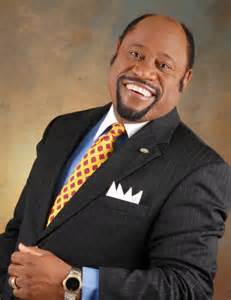Dr. Myles Munroe was an internationally renowned evangelist who preached that wealth and worship cannot be separated. He believed that a good Christian must make money to give to the Lord. in his life before he passed away a few days back he believed in that.
You may not agree with him on the relationship between worship and money, but it is hard to ignore his advice on how to create wealth and change the world.
During his three-day visit to Uganda in 2013, hundreds of people were stunned by his personal story of transformation from poverty to wealth, which made his advice more believable.
Born in one of the poorest suburbs in the Bahamas, Munroe rose to prominence as a preacher, motivational speaker, consultant and leadership mentor with a multi-million business empire.
“I was born poor, sleeping on the floor with cockroaches and rats. Today, I own my own jet. Everything I have is paid for. I am debt free; I open new businesses every year and mentor many people,” he said during the Business Forum organised by the Uganda Jubilee Network at Serena Hotel in 2013.
In his lecture titled: ‘Business Leadership in the 21st Century’, Munroe said setting principles is the fi rst step towards achieving success for any budding entrepreneur. “I will never be poor again because I have learnt the principles of business,” he asserted.
From his experience, principles matter even more than technical know-how. “I can say without a doubt that what I have accomplished is based on principles passed on to me by my parents. You should never build your life on facts or techniques because these often become obsolete,” he cautioned.
According to Munroe, the success of any business today will depend on its response to changes brought about by globalisation, communication, cultural diversity, technology and partnerships.
“For you to survive today, you must accept the reality of partnerships. If someone emerges as my competition today, I am not supposed to kill them, but marry them,” he stated.
“Do not curse a crisis; use it. Every business is a solution to a crisis. Develop the capacity to solve a problem and you will become a successful entrepreneur,” he said.
On unemployment, Munroe strongly discouraged the reliance on Government for jobs, describing it as ‘lazy thinking.’ “There is no such thing as unemployment in the world. What you call unemployment is what I call lazy thinking,” he said.
“The work of government is not to create jobs, but to create an environment for people to develop their own work,” he asserted.
Munroe discouraged employed professionals against relying solely on their jobs for income, urging them to instead create wealth using their unique talents. He also challenged aspiring entrepreneurs to develop and refine their expertise in a talent, idea, service or body of knowledge.
“When you refine your gift in an area, you become valuable; people seek you out and pay you,” he said. But Munroe also places emphasis on social stability and political transformation as one of the keys to successful business.
“If Uganda wants to grow as a strong and sustainable economy, you must make sure there is political stability and social peace at all costs,” he said. He notes that even the leastendowed individuals, businesses or nations can get out of adversity by identifying and exploiting their unique advantage.
He explained that his country, the Bahamas, with no known mineral reserves, still attracts over six million tourists per year, making it one of the best tourist destinations in the world.
“We have no gold, copper, uranium. All we have is water and sand. Our greatest available resource is our intellectual ability,” he boasted.
According to Munroe, a globalised market affects businesses in terms of competition and speed. He, however, argues that this also presents opportunities for a wider market and lower tariffs. On managing crisis, Munroe advised businesses to consider every challenge as an opportunity for innovation.
In a rather candid tone, Munroe emphasised that the Church and wealth creation should not be separated. “Poor people cannot tithe. Build the people and they will build the ministry,” he states, adding that clerics must build ‘a church of business people and lead by example.’

